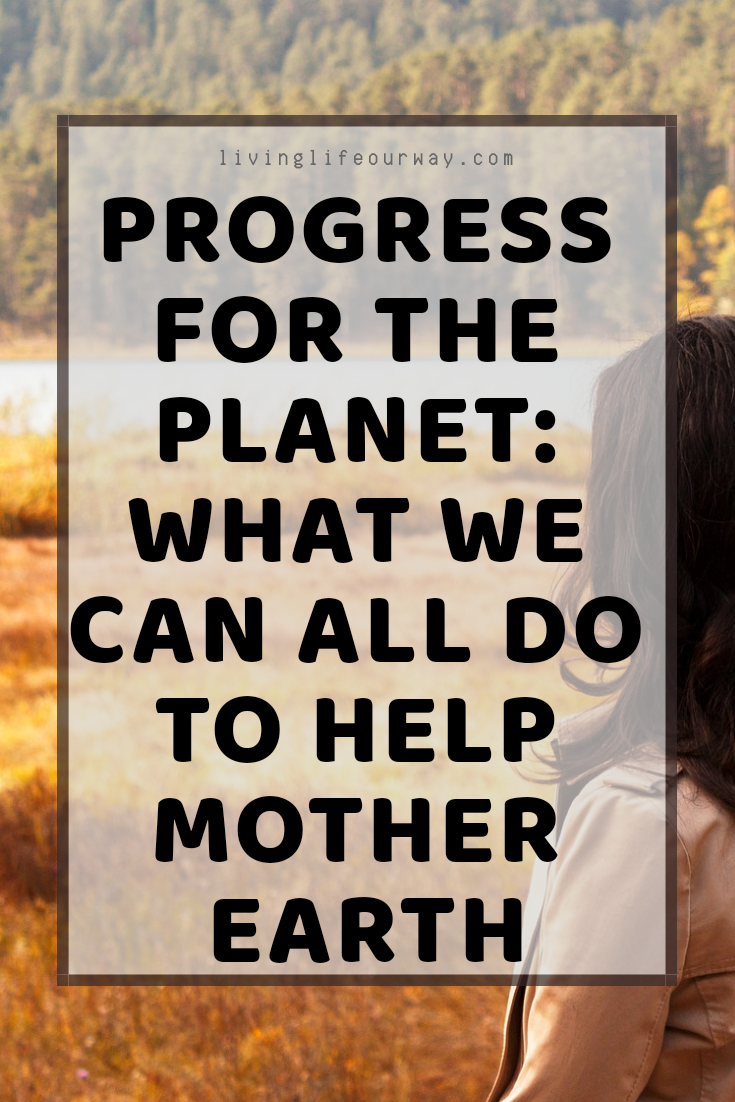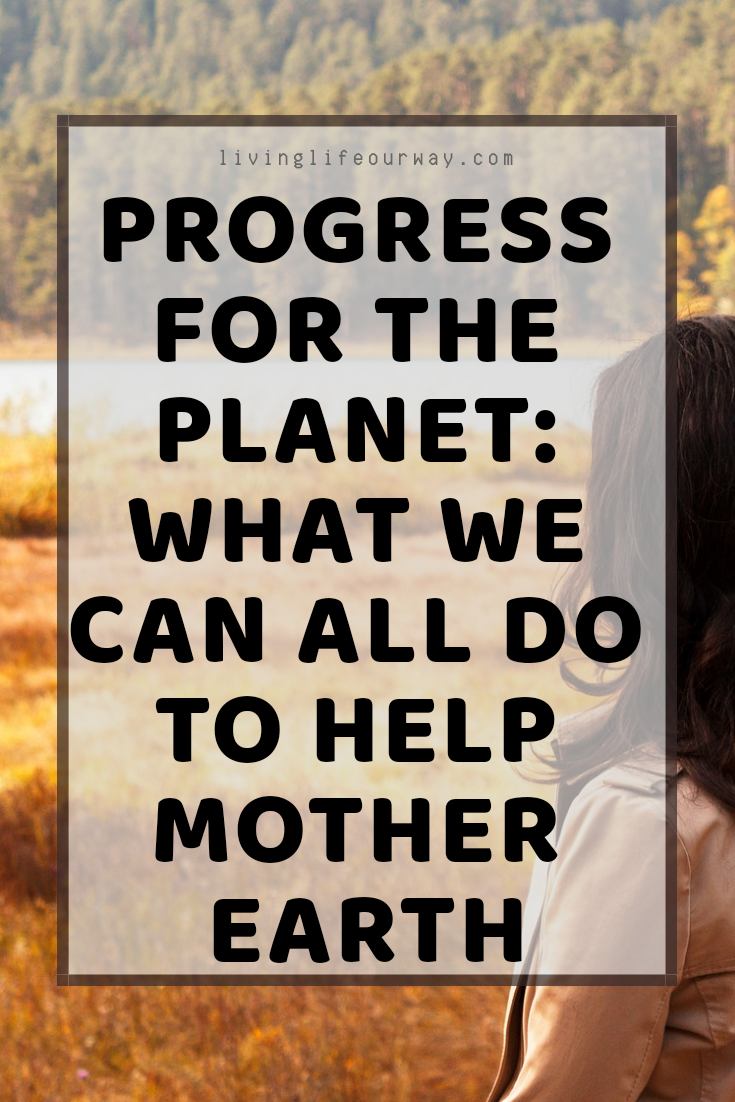The evidence is overwhelming, and, let’s face it, you can’t get away from it now. The fact is we’re not doing enough to benefit the planet. Climate change is very real, and even if you don’t necessarily agree with the information that’s out there, we can all help to improve the planet we live on. Luckily, there’s been one hell of a drive in the last few years in small methods to cut back on energy expenditure, which, in turn, lessens our carbon footprint. Every single one of us has the potential to change the planet for the better, and it all begins with small habits. So, what are these habits?

Look At Your Waste
In the United States, approximately 40% of the food consumed is thrown out. Now, that’s a very huge amount, especially when you think the amount of food wasted could feed 1 billion people! In addition to this, the health epidemic that is in the western world, especially with regards to obesity and lack of exercise, means that overall, we humans are providing waste on so many fronts. So, what is the answer?
Firstly, to benefit each and every one of us, as well as the planet, we can look at reducing our portion sizes. Not only does this improve our waistline, but waste is greatly reduced. Not only this, by going into our weekly supermarket shop with a preconceived plan, we don’t buy excessive amounts of food that we’ll end up wasting anyway. On top of this, start to be more clever with your food in general, such as using leftovers, so every morsel of food you purchase doesn’t go to waste.
How Much Do You Really Need To Use That Car?
It’s great now that so many of us are actively looking for other ways to travel rather than use our car. As well as thinking about getting a bicycle or using public transport in our everyday lives, such as to and from work for example, there are also other things you can try to do so that you aren’t required to use the car so much.
For example, if you tend to go on roadtrips often and use the car to travel on vacation a few times a year, when you think about how much you use your car for that reason, perhaps you could even consider cutting back on the number of roadtrip vacations you have of this nature? Or, if you are more than adamant that your downtime goes unspoiled, maybe it’s time to think about other parts of your everyday life that you can cut back on.
Working from home is one of those great options, because you don’t need to take the car to the office. Whilst many experts believe you could be using more energy at home, because you potentially turn on lights, the television, etc… there are some summer energy saving tips you can follow to ensure that you are cutting back as much as possible.
Look At Your Energy Expenditure
Once we begin to think about how much our carbon footprint affects the planet, then we can make a concerted effort to cut back on overall energy expenditure. There are many carbon footprint calculators online to give you a head start. A lot of us don’t think about our own personal impact, and when you realize how much energy you are using, from getting in the car, to the food you consume, to the electricity you use, then you can start to help the planet by curbing certain lifestyle habits.
Even something like consuming meat can help mother earth, even by just cutting down on meat by one portion a week. You can have meat-free days at home, and if you are concerned that you won’t get enough protein, remember, there is more than a sufficient amount of protein in pulses and quinoa, and are all vegan-friendly. Ultimately, the best way to have an impact on the planet with regards to our diet is to eat as locally as possible.
When you think about the food you purchase in the supermarkets, even though you mean well by consuming fruits and vegetables, by looking at the place of origin, and then consider the carbon footprint it took to transport these fruits and vegetables to your supermarket, going local is one of the main common sense approaches to benefiting the planet. Not to mention the fact that eating local produce that hasn’t been sprayed with pesticides is better for you. Yes, the price tag appears to be more expensive, but by consuming whole foods that fill you up and aren’t injected with preservatives or water to bulk them out, you will naturally crave less food. And you don’t need to see a doctor to understand how whole foods can impact every aspect of your life, from improved brain function to overall health; you can eat these foods, or grow them yourself, and feel the benefits.
Thinking About Everyone Apart From Ourselves
A true way to get an appreciation of what you can do to help the planet is to witness some of the positive outcomes. For example, by donating your leftover food, rather than letting it go to waste, to food kitchens or homeless shelters, you are going to serve the community. There are many supermarkets that encourage you to donate a few cans of foods whenever you can, to minimize wastage. And actually helping out in a local sense is the perfect starting point, because then you can see the impacts all around you, not just in an environmental sense, but in the fact that you are also helping the homeless or others in need. Or you’re even just seeing that you are saving money! It contributes to an overall feeling of wellness. This, in turn, contributes to our overall feeling of compassion and fuels our desire to do something to benefit the planet.
We can feel like we’ve heard enough lectures on how to benefit the planet, which is why it’s far better for you to take the initiative and to do things yourself. Once you start this, either by actively looking for ways to minimize your carbon footprint, or getting a better understanding of how we are damaging the planet, only then can we progress.
*This is a collaborative post.

